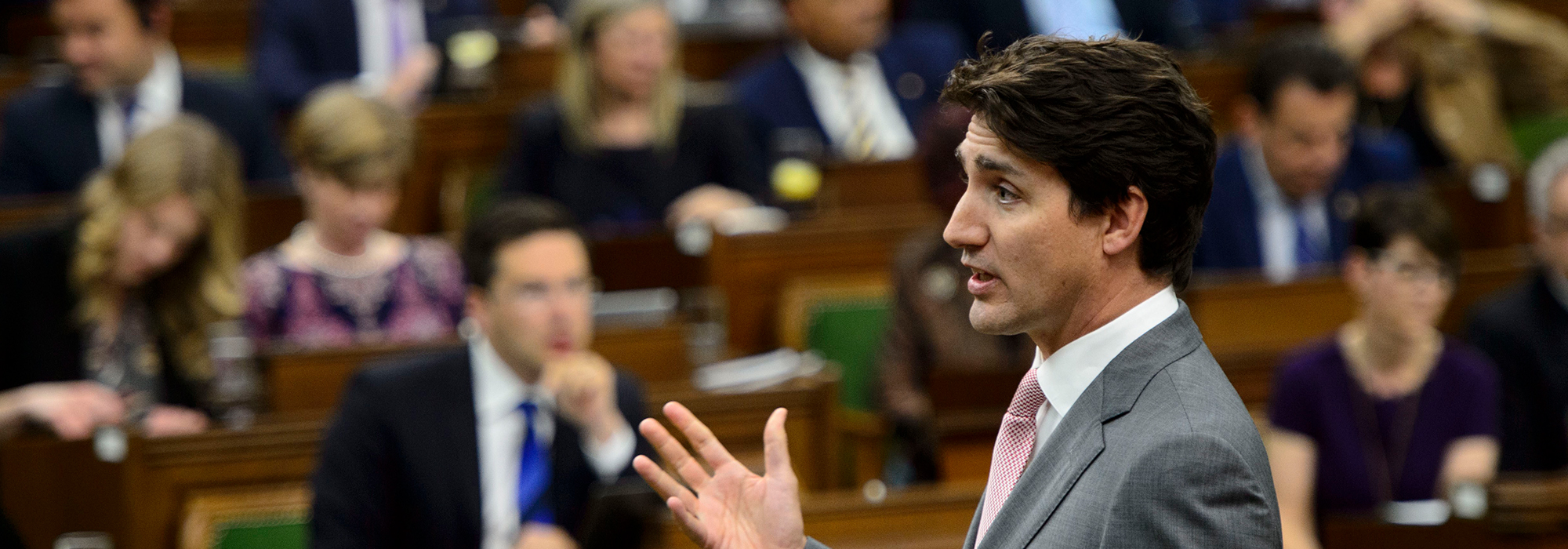
With a federal election approaching, Canadians seeking elected office might be wondering about messaging strategies and whether the rules of engagement have changed. After all, Donald Trump, who has insulted 598 people, places and things on Twitter alone (as of May 24), is president of the United States. Crowds at his political rallies go wild when he calls his opponents names or insults their character, “feeding red meat to his base.” Michelle Obama responded to Trump’s incivility with the slogan “When they go low, we go high” — but her preferred candidate lost. Canadian candidates for office may now be wondering if there is a lesson to be learned from south of the border. If insulting people worked for Trump, might it work for Canadian politicians?
As an experimental social psychologist, I have spent the past few years systematically testing this idea. The results from my experiments surprised me: insulting people remains a losing strategy in 2019. Even a politician’s most diehard and adoring followers do not react positively to uncivil political attacks. My advice to those aspiring to public office is to remain civil and win votes the old-fashioned way: on their merits.
It might seem obvious that onlookers would disapprove of someone personally attacking a political opponent. However, when people are grouped together into teams, the normal rules of engagement don’t always apply. For instance, body checking is usually not an acceptable thing to do, but it is sure to draw cheers at a hockey game (when the visiting team is on the receiving end, that is.) Like hockey, politics can be deeply personal for some people; it can set up a sense of “us” and “them.” At times, political opponents can seem threatening. Their policies can look callous and harmful. This sort of intergroup conflict can alter the rules of engagement by giving group leaders (politicians) a social licence to attack the other side as a means of thwarting the perceived threat. Whether this licence applies to insulting political opponents in the Information Age remained to be seen until we conducted our experiments.
An experiment finds that Americans across the political spectrum approved of Trump more after reading a civil tweet than after reading an uncivil tweet, meaning that incivility uniformly backfired.
Yes, Donald Trump insults people. And yes, he is President of the United States. But those two facts do not necessarily mean that Trump’s insults in some way helped him win the election. His insults and electoral victory appear to be correlated, but correlation does not imply causation. To get to the bottom of this question, my collaborator at the University of Illinois, Chicago, Linda Skitka, and I conducted a series of experiments. In each one, we randomly assigned about 1,000 Americans (from an internet panel) of varying political stripes to read either a real and insulting tweet by President Trump or a more civil version of the same. They then indicated how they felt about the President. Americans across the political spectrum approved of Trump more after reading a civil tweet than after reading an uncivil tweet, meaning that incivility uniformly backfired.
Even people who self-identified as “diehard Trump supporters” either reacted negatively to Trump’s incivility or were unmoved by it. It didn’t matter if Trump’s opponent insulted him first and his incivility was a means of restoring his honour; Americans still preferred civility. An analysis of the pattern of Trump’s uncivil tweets over time confirmed that they have a subsequent depressing effect on his public opinion polls, meaning that the results from our experiments and evidence from the real world converged. Simply put, Donald Trump probably won the US presidency not because of his incivility, but in spite of it. With the US economy humming along, just imagine what his approval ratings would be if he were to be civil more often. If insulting opponents backfires for Trump, it surely would backfire for Canadian politicians.
Why do insults backfire? Psychologists have worked out that people’s impressions, favourable or otherwise, tend to be rooted in two general categories: warmth and dominance. It is generally better to be seen as warm than as cold. And it is generally better to be seen as dominant than as submissive. We suspected that insulting an opponent would make a politician seem more dominant (a positive impression) but perhaps less warm (a negative impression). For diehard supporters of the politician, we wondered if the dominance boost might be larger than the warmth deficit, leading to a net boost in approval. However, we found no evidence that insults make a politician seem more dominant in the first place. Rather, insults only made a politician come across as cold. This perception of coldness explained why insults were universally frowned upon.
Along with its strategic shortcomings, political incivility can have larger, more ominous consequences. In their book How Democracies Die, Steven Levitsky and Daniel Ziblatt make the case that a formal system of checks and balances is necessary but not sufficient to prevent the collapse of a democracy into one-party totalitarianism. It is also necessary for members of different political parties to remain civil with and tolerant of one another (while still disagreeing about policy matters). Incivility can create a sense that subjugating the rights of a political party is both justified and necessary, and thus leads to democratic collapse. When it comes to civility, the interests of politicians and of our democracy are aligned.
Based on what I’ve learned so far from the science of persuasion, Canadians aspiring to public office would be wise to mind their manners and focus their attention on remedying the most important issues facing our nation, such as climate change, the economy (including affordable housing, the cost of living, the wealth gap between the rich and poor) and health care (including the opioid crisis). Insulting political opponents hasn’t helped Trump and it probably won’t help Canadian politicians either.
Photo: Prime Minister Justin Trudeau stands during question period in the House of Commons on Parliament Hill in Ottawa on Tuesday, June 11, 2019. The Canadian Press, by Sean Kilpatrick
Do you have something to say about the article you just read? Be part of the Policy Options discussion, and send in your own submission. Here is a link on how to do it. | Souhaitez-vous réagir à cet article ? Joignez-vous aux débats d’Options politiques et soumettez-nous votre texte en suivant ces directives.








